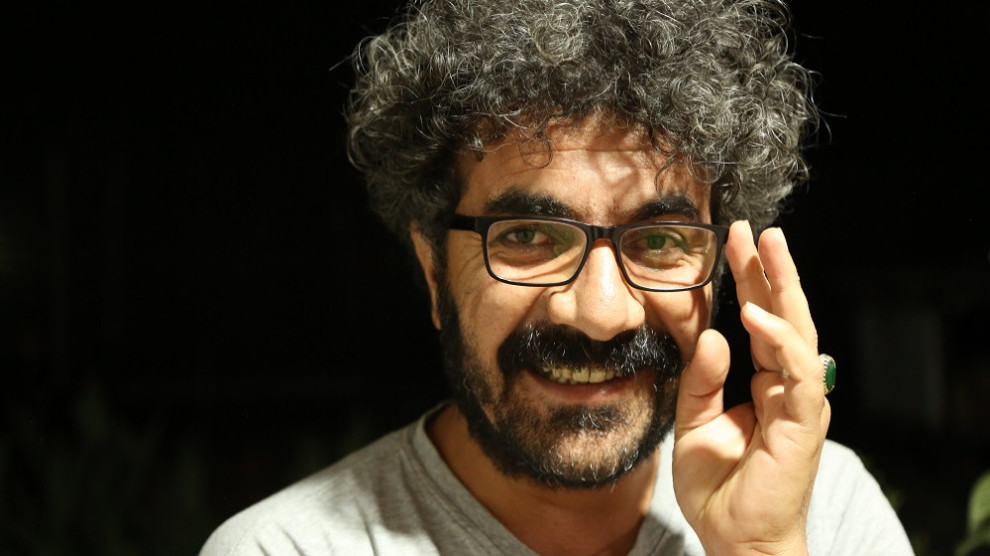Rojava filmmaker Şêro Hindê talks about his new documentary
Dengbêj are Kurdish poets, bards, those orally passing on to the new generation the traditional songs of different genres, without musical accompaniment.
Dengbêj are Kurdish poets, bards, those orally passing on to the new generation the traditional songs of different genres, without musical accompaniment.

“Evîn Di Rûyê Qirkirinê De” (Kurdish for “Love in the face of genocide”) is the title of the new documentary by Rojava filmmaker Şêro Hindê.
The film is about the oral literature of the Yazidi Dengbêj in Shengal. Dengbêj are Kurdish poets, bards, those orally passing on to the new generation the traditional songs of different genres, without musical accompaniment. They are passing from generation to generation the pain and suffering of their society, wars and conflicts between peoples and ethnic groups, the pain of love, fairy tale stories, lamentations, hymns of prayer.
For the Kurdish people in particular, oral literature is seen as the autobiography of society, which is why a Dengbêj is also considered a historian.
Research on oral Kurdish literature does exist, but only to a limited extent. In particular, there is a lack of detailed work on the traditions in certain cultural areas such as the Yazidi settlement areas.
The Yazidi, the vast majority of whom are defined as Kurds, are a people with a syncretic, monotheistic religion that combines elements from Zoroastrianism and Sufism, and have not only been subjected to systematic persecution by the Islamic State (ISIS), but have been persecuted since the Islamization of the Middle East including the Kurdish areas in the present nation states of Iraq, Turkey, Syria and Iran. It is believed that since the 12th century, the Yazidi have been the victims of 74 Ferman, i.e. genocides or massacres by Islamized groups and states. The Dengbêj carried these experiences to the present day with her voices.
The word Ferman actually refers to a decree in Islamic countries, with the Yazidi however it has the meaning of "genocide".
"Evîn Di Rûyê Qirkirinê De" - A film by the Rojava Film Commune
This chain of persecution of the Yazidi is also sung in the songs of the bards from Shengal. Even many of the love songs are about the sufferance of the Ferman. “Evîn Di Rûyê Qirkirinê De” is therefore an excellent source of knowledge about the history of the Yazidi community of this region.
“Evîn Di Rûyê Qirkirinê De” was produced by the Film Commune Rojava (Komîna Fîlm a Rojava), the shooting continued for almost three years. The soundtrack of the documentary is by Mehmûd Berazî, who is also a producer of the guerrilla band Awazê Çîya, but more recently has worked as a composer of Kurdish a-cappella music. His name has also been known to many people outside Kurdistan as he is the author of Şervano, the song of resistance in Rojava.
The trailer of the documentary "Evîn Di Rûyê Qirkirinê De", produced by Rojava Film Commune, directed by Şêro Hindê and music by Mehmûd Berazî, was released on Wednesday.
Rojava director Şêro Hindê, who is also a songwriter, talked about the idea of the film, the shooting process and the Yazidi dengbêjlık to ANF.
Saying that after the Shengal massacre, they started to get to know the intricacies, life and culture of the Yazidi belief, Şêro Hindê added that the Kurds also turned towards the dengbej, which is considered as the ‘credo’ of their verbal expression.
Director Hindê also talked about the behind-the-scenes of the documentary, which is produced by the Rojava Film Commune: "We are doing a communal work. Everything from the shooting, the editing, the script, the music is done in a communitarian way and is done here in Rojava. There is nobody from the outside. Many people also wanted to offer support. But we did not accept it. We say let's do it ourselves even if we have deficiencies."
The first screening for the Kurdish film audience is planned in Qamishlo on 3 August, the anniversary of the ISIS attack on Shengal.
WHO IS ŞÊRO HINDÊ
Born in 1983 in Qamışlo, Şêro Hindê studied Archeology at Damascus University. He received camera training in Damascus and during the Rojava Revolution started to take part in the Rojava Film Commune for which he carried out various researches in the field of culture. Şêro Hindê, who is also a songwriter and also an actor.